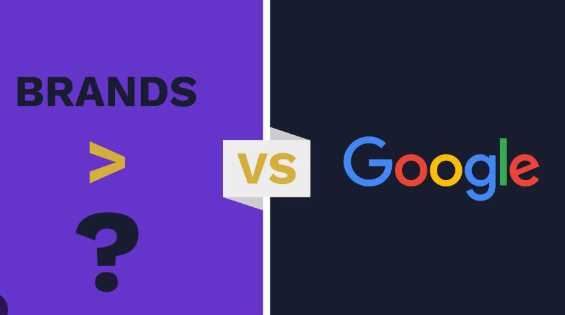
23-Feb-2024 , Updated on 2/24/2024 3:08:25 AM
Is it true that Google favors big brands even having poor content?
Many individuals believe Google favors big businesses and ranks low-quality material, which they believe has become worse over time. This may not be a question of perspective; something is going on, and almost everyone has a story about low quality search results. The probable causes for this are extremely startling.
Google has shown favoritism in the past.
This isn't the first time Google's search engine results pages (SERPs) have revealed a bias for large brand websites. During the early days of Google's algorithm, it was clear that sites with a high PageRank ranked for almost any keyword.
For example, I recall a web design firm that constructed a large number of websites, establishing a network of backlinks and elevating their PageRank to a level typically seen only on large corporate sites such as IBM. As a result, they scored for the two-word keyword phrase Web Design, as well as almost every other version, such as Web Design + [any state in the United States].
Everyone knew that websites with a PageRank of 10, the maximum level displayed on Google's toolbar, had almost no competition in the SERPs, resulting in major brand sites outranking more relevant URLs. It did not go unnoticed when Google finally altered their algorithm to address this issue.
Here are some more algorithm biases that publishers used:
Top 10 posts include longtail "how-to" articles.
- Misspellings
- Free widgets in the footer with links (always free for institutions!)
Big Brands and Low-quality Content
- Two things have been constant throughout Google's history:
- Low-quality content
- Big brands are squeezing out little independent publishers.
Anyone who has ever searched for a recipe understands that the more generic the recipe, the lower the quality it is ranked. When you search for "cream of chicken soup," almost every recipe calls for two cans of chicken soup.
Explanations of Why Google's SERPs are Broken
It's difficult to shake the impression that Google's results for a wide range of topics always favor large brand websites and low-quality webpages.
It is possible for small websites to evolve into large businesses that dominate SERPs. But here's the thing: even when a tiny site grows in popularity, another major brand takes its place in the search results.
Common explanations for low SERPs:
- It's a plot to boost ad clicks.
- Today's content is of low quality, and Google lacks other ranking factors.
- The blame lies with SEOs and affiliates.
- Poor SERPs are Google's ploy to encourage more ad clicks.
People love big brands and garbage content.
The recent Google antitrust case highlighted the significance of the Nav Boost algorithm signals as a key ranking component. Navboost is an algorithm that uses user interaction signals to determine which themes a webpage is important for, among other things.
The notion of leveraging interaction signals to predict what consumers anticipate to see makes sense. After all, Google is user-centric, and who better to determine what is best for users than the users themselves?

CONTENT WRITER
Writing is my thing. I enjoy crafting blog posts, articles, and marketing materials that connect with readers. I want to entertain and leave a mark with every piece I create. Teaching English complements my writing work. It helps me understand language better and reach diverse audiences. I love empowering others to communicate confidently.
Join Our Newsletter
Subscribe to our newsletter to receive emails about new views posts, releases and updates.
Copyright 2010 - 2026 MindStick Software Pvt. Ltd. All Rights Reserved Privacy Policy | Terms & Conditions | Cookie Policy